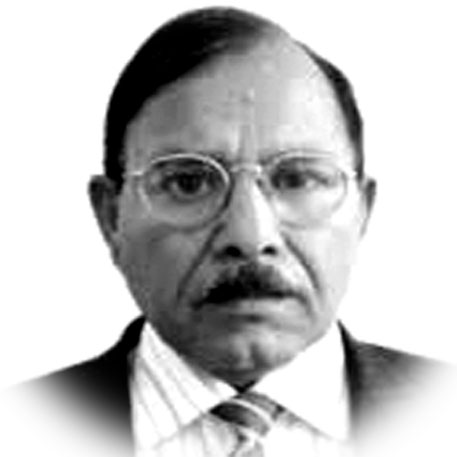Budget: A commoner’s view
IN the modern era, governments all over the world are charged with the responsibility to propel economic development, playing a facilitating role in the creation of conducive atmosphere for different sectors of the economy enabling them to contribute to the overall development effort, raising revenues to meet ever growing needs for socio-economic development and, above all, promoting well-being of the masses through measures that aim at providing relief to them and alleviation of poverty.
The diversity of stakeholders and conflicting interests makes the task of governments quite difficult in performing a balancing act.
That is why economic management of an economy, especially a developing country like Pakistan, is an extremely onerous undertaking.
Budget is considered as the most important tool of economic management and rightly invokes a lot of interest among different sections of the society as it, one way or the other, affects the lives of the people and their economic situation.
People tend to judge a budget from the perspective of their own interests. That is why it is absolutely impossible to have a unanimous view about the impact of the budget on the economic landscape of the country and well-being of the people.
A realistic appraisal of the budget requires looking at it from the perspective of existing state of the economy and the responsibilities that the government is supposed to shoulder in regards to its management and the impact it is going to have on the life of the people.
There are no two opinions about the fact that the PTI inherited an economy in doldrums. It required a gigantic effort to stem the rot and put it back on the path of sustained growth.
It did launch initiatives to grapple with the permeating situation and regain health of the economy.
However just when the economy had started showing signs of recovery, it was struck by the onslaught of the pandemic which pushed the growth rate into negative and the projections about the future were very disappointing.
However the government tackled the situation with unruffled aplomb and its strategy to keep the economy kicking really worked.
During the current fiscal years not only remittances witnessed exponential increase but the large scale industrial sector also grew by 10% which, by all standards, represents appreciable success.
The economy also received arm in shot due to giving the status of an industry to the construction sector and the incentives allowed to the investors.
It was a sagacious decision as the construction industry is linked to a myriad of other industries like cement, steel, glass etc.
The investment made in this sector had the desired effect and the cement and steel sales showed tremendous increase. The low-cost housing introduced by the government also had its impact.
On top of that the bumper wheat, sugar-cane, maize and cotton crops also contributed to the GDP growth.
The wholesome effect of all the foregoing factors was that the growth rate touched 3.94 % far above the predicted rate of 1.5 to 2 %.
The growth rate achieved during the current financial year did corroborate the fact that the economy had become stable and was poised to rebound if the government laid more emphasis on growth.
That exactly seems to be the strategy of the new budget. Riding on the growth rate achieved it has rightly focused more on enhancing and strengthening avenues of production. The health of the economy depends on the growth rate that it achieves.
The greater the rate of growth greater is the ability of the government to reduce budgetary deficit which is mother of all economic ills, make repayment of loans, enhancing revenues and taking measures to ameliorate the lot of the suffering masses.
In this regard the government has presented an expansionary budget for the year 2021-22 to sustain the process of recovery and giving it further impetus.
The PSDP allocation of Rs.900 billion in the budget represents 40% increase as compared to the outgoing fiscal year.
The budget also focuses on generating more indigenous revenues which, logically speaking, are an indispensable imperative.
The government has to lay more emphasis on raising indigenous revenues to fiancé projects in the socio-economic domain and to be able to provide relief to the masses.
It rightly envisages to raise Rs.5,829 billion in taxes compared to Rs.4,963 during the last fiscal year, an increase of 17.4 per cent by bringing traders and other non-tax paying sectors into the tax net. The enhancement of taxes will also lead to less borrowing.
The decision to avoid increasing taxes on salaried people and giving 10% adhoc relief to them and the pensioners, rationalizing withholding taxes, avoiding taxation on the internet as had been proposed and the launch of multiple development projects which would give employment to the many still unemployed after the Covid-19 crisis suggests that the government was at least attempting to find a way to ameliorate some of the misery of people burdened by the high prices of petrol and other daily needs.
This budget could be a first positive step in the right direction. It surely seems growth and welfare oriented.
In view of the momentum achieved during the current year the growth rate target of 4.8 per cent for 2021-22 seems quite realistic and achievable. There is some sense of direction in the budget.
I, as a commoner, honestly feel that in the given circumstances it is an appreciable effort to create a balance between development needs and providing relief to the people.
— The writer is former Director General Ministry of Information and Broadcasting, based in Islamabad.










